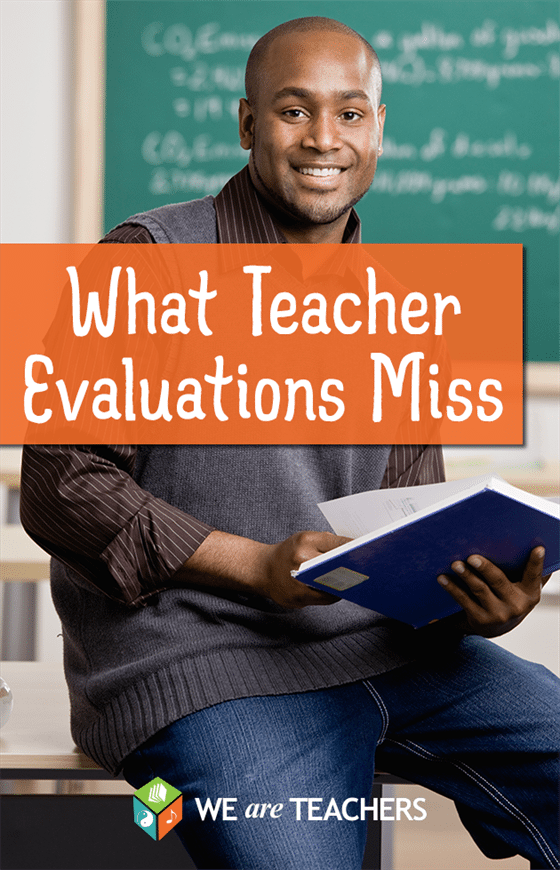As a student, I could definitely tell the difference between a good teacher and a bad teacher. Good teachers, besides teaching, seemed like they wanted to be there; they liked us and were invested in our learning. They were willing to find new ways to explain the material so all of us could learn. They got to know us as individuals and accepted our quirks. Bad teachers were just counting the days until retirement…and we could tell.
The rubric they use for teacher evaluations often doesn’t reflect these qualities, though. It’s a checklist of behaviors (in my state, it seems mostly centered around making sure the standards are clearly displayed on a whiteboard) that puts little focus on the relationship between teacher and students, arguably the most important dynamic in any classroom.
One of the best teachers I had in middle and high school was a man who, for the sake of anonymity, we’ll call Mr. Roll. The guy was pretty amazing; many of us who took his class went on to become teachers ourselves, which I think is a major tribute to him. However, if his teaching had to be measured by current teacher evaluations, I worry that he’d be deemed a failure according to the criteria we’re supposed to meet.
1. First of all, he was a chorus teacher.
I mean, could he choose two fields more lacking in prestige than music and education? If you insist on pursuing a career in music, you’d better be a performer. And if you absolutely must teach, at least choose a STEM field…you know, something that matters. Being a chorus teacher is tantamount to announcing that it is worth pursuing what you love regardless of salary, respect, or status. Is that really the message we want to send our children?
Also, he was a male chorus teacher. I’m sure at least a few boys in our small Southern town picked up the idea that it’s okay for a guy to be more interested in the arts than in sports. Maybe his demeanor even gave them the impression that strength is not the same as aggression. You don’t win championships with that attitude!
2. Secondly, Mr. Roll lacked the emotional reserve required for a positive teacher evaluation.
He sometimes showed frustration or disappointment. Once or twice, I remember him wiping away tears after a particularly well-done performance. If the ideal is a standardized, completely objective classroom focused only on skill development, he missed the bar.
3. Mr. Roll sometimes got off-topic in class.
Which I’m sure doesn’t help during an administrative observation. Half my memories of middle school chorus have little to do with time signatures or sight-reading. I remember dozens of stories from my teacher’s childhood. Often, these stories centered around mistakes he made or embarrassing setbacks he faced. They usually came up when a student was struggling or frustrated.
These stories taught a generation of kids about the value of a growth mindset, and the importance of being able to laugh at ourselves. They made us believe that even the worst students were not beyond redemption, and that failure could prepare us for eventual success. If some of my evaluators saw him teaching us valuable lessons about character and perseverance instead of chromatic scales, well, they’d definitely question his priorities.
4. He was unapologetically human.
He told stories of his past mistakes, and he acknowledged his current ones. I even remember occasional apologies! A teacher is supposed to be a professional, Mr. Roll. If we admit that we are capable of mistakes, what’s to keep students from questioning our authority? Which brings me to my next point…
5. Mr. Roll failed to maintain strict boundaries between teacher and students.
We knew his fears and weaknesses. He joked around with us and we felt comfortable teasing him both in and outside of class. (Including by using a certain nickname, for which I belatedly apologize. Sorry, Mr. Roll! And if you’re not sure what I’m referring to, never mind. It’s nothing.) Especially in our high school years, my classmates and I were able to talk to Mr. Roll like a fellow human being. For a few, he was a surrogate parent. I’m pretty sure that would bump him down a peg or two in the “professionalism” section of the rubric.
6. He failed to achieve 100% proficiency for all students.
As evidenced by the fact that I still can’t sing worth a damn. I mean, sure, I can still read a little music and I can enunciate like a boss, but ask me to sing a standardized aria for a state benchmark and you’ll immediately regret it. You had one job to do, Mr. Roll. One job.
I’m not sure Mr. Roll would have received the stellar evaluation he deserved. And, worse, I think he passed his terrible habits on to a new generation of teachers. For instance, I use my own weaknesses and vulnerability to relate to students. And I’m more likely to tell a story than to lecture when students act up in my class, a failing I attribute directly to Mr. Roll. Don’t tell my principal, but I occasionally prioritize my students’ emotional needs over their academic progress. I’ve even been guilty of teaching for growth, rather than mastery.
Maybe someday I’ll be the perfect automaton of a teacher, garnering straight Commendables on my evaluations. Until then, I’ll proudly join the ranks of failures, those of us who stumble blindly alongside our students rather than shouting orders from the hilltop. And I’ll be forever grateful to those who taught me to fail triumphantly.

